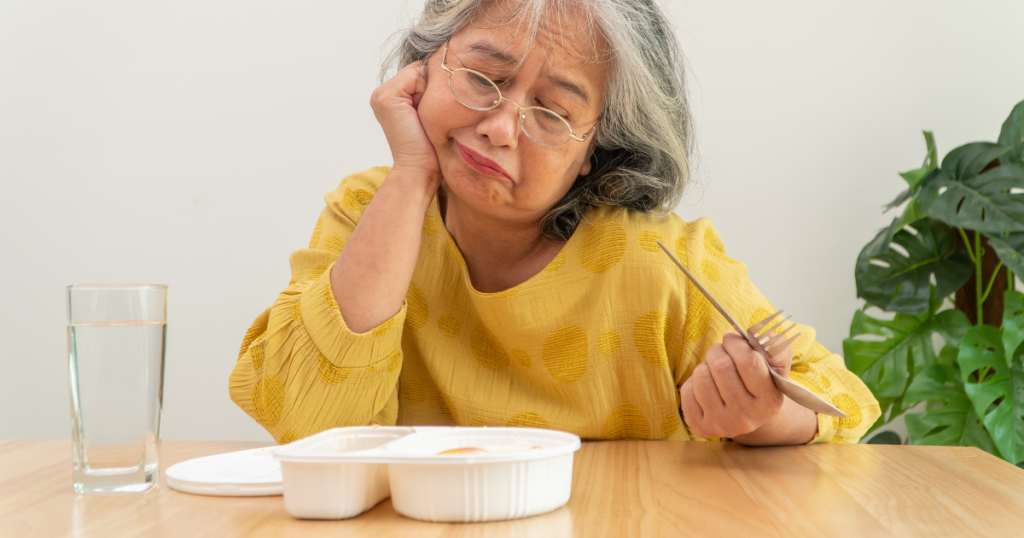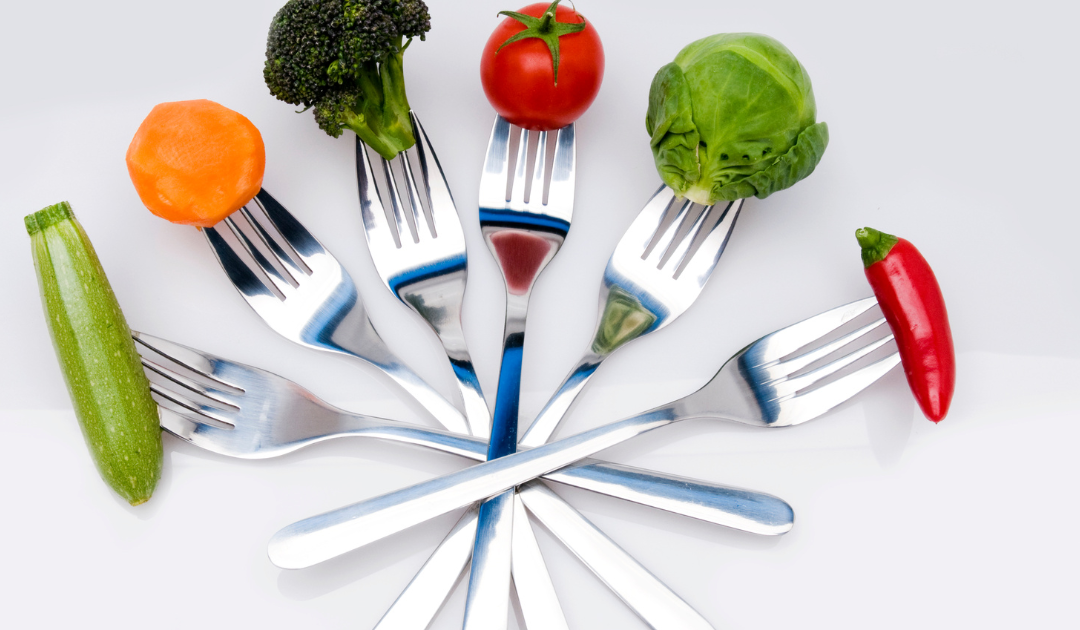Disordered eating is so common that it’s hard to identify and define. It’s just accepted as “normal”.
Kind of like fish not knowing they’re wet. It’s just how they live.

We’re born with all of the knowledge we need in order to eat well. But over time, the knowledge goes offline. Especially with our cultural obsession with thinness as our backdrop. And the tendency to categorize food as “good” or “bad”. As if food has a moral quality.
What is normal eating anyway? To define DISordered eating, we first need to know what ordered (“normal”) eating is.
Ellyn Satter, a registered dietician and family therapist, has an often cited definition. (She has lots of street cred as an internationally recognized expert on eating.)
She says normal eating is….
- “… eating until you are satisfied.
- Being able to choose food you enjoy and eat it and truly get enough of it – not just stop eating because you think you should.
- Giving some thought to your food selection so you get nutritious food, but not being so wary and restrictive that you miss out on enjoyable food.
- Giving yourself permission to eat sometimes because you are happy, sad or bored, or just because it feels good.
- Mostly three meals a day, or four or five, or it can occasionally be choosing to munch along the way.
- Leaving some cookies on the plate because you know you can have some again tomorrow, or it is eating more now because they taste so wonderful.
- Overeating at times, feeling stuffed and uncomfortable. And it can be undereating at times and wishing you had more.
- Trusting your body to make up for your mistakes in eating. Normal eating takes up some of your time and attention, but keeps its place as only one important area of your life.
In short, normal eating is flexible. It varies in response to your hunger, your schedule, your proximity to food and your feelings.

Is it even possible to have a “normal” relationship with food these days?
My thoughts: “YES, but…”
“Normal eating” remains quite the oxymoron in our culture. As if the two words don’t belong together, side by side. And that an understanding of how the two words could possibly be a real thing is hard to believe. A common response is something like, “nondieting and normal eating may work for other people, but not for me. I could never do that.”
Indeed, nondieting (“ordered” rather than disordered eating) may seem like a radical act. To actually tune back into your own body’s natural signals. Not an easy thing to do – the signals have been derailed. Diet Culture’s rules of should’s and shouldn’ts have overridden your body’s inherent wisdom. BUT, you CAN reclaim that wisdom. Actually, to do so is your birthright.
Defining disordered eating is also difficult because there’s no specific criteria. In order to address a problem, defining it is helpful in order to know what it even is. And to understand why it is a problem in the first place.
The main reason disordered eating is hard to identify and define is because it is more the norm than not in our weight obsessed, diet oriented culture.
Consider the fact that disordered eating, eating disorders, and dieting are more common than normal eating. That’s disturbing.

So what are the signs and symptoms of disordered eating, and how do you distinguish it from eating disorders or dieting?
Signs of Disordered Eating:
Disordered eating takes a variety of forms. Examples include limiting intake to a certain number of calories or macros; eating only certain foods and avoiding others for weight related reasons; bingeing, purging, restricting, and/or fasting.
The mindset and behaviors that drive disordered eating can be hard to distinguish from cultural definitions of normal eating. And to distinguish from an Eating Disorder All of these behaviors are concerning. In time they can easily morph into a full blown Eating Disorder.
Disordered eating often has additional features, including:
- Self-worth based on body weight and size
- Body dissatisfaction
- Exercise to compensate for eating
- Preoccupation with food, weight
- Compulsive use of scale to check body weight
- Fad dieting
- A rigid approach to eating, such as only eating certain foods, inflexible meal times, refusal to eat in restaurants or outside of one’s own home
There are also lots of side effects of disordered eating.
For example:
- Decreased ability to focus because thoughts about food, body, and exercise get in the way.
- Social activities are affected, especially if they involve eating in a restaurant. Or eating foods that aren’t part of the plan.
- Using disordered eating rules to cope with stress.
- Anxiety due to food, weight, exercise.
Treating Disordered Eating
Disordered eating impacts physical and psychological health and puts people at risk for a host of problems. And it takes away from quality of life. Big time.
The relationship we have with our bodies is complex. So is how we nourish ourselves.

Fortunately, it is never to late to improve your relationship with food or your body. And there is no better time than right now.
As a psychologist, I’m biased in favor of psychotherapy. At least to support you as you start on the path of improving your relationship with food and your body. Finding like minded people also helps. There are communities to join online for example that may empower you.
Psychotherapy is helpful because it provides an opportunity to understand complex relationships with food and body. Also, therapy helps people move toward body acceptance. In addition, a nutritionist who specializes in eating disorders and adopts a non-diet approach to food and exercise can also be a good resource. Particularly with respect to increasing attention to the body’s natural hunger/fullness cues.
Reclaim your natural default of Intuitive Eating. Eat unconditionally. In whatever way pleases your body. Food is meant to be a source of pleasure. Denying yourself of it does not make you virtuous. Fueling and nourishing yourself well provides a sense of freedom, energy, and limitlessness.

Consider being your own unique fish, and surround yourself with others who share your vision.
I am a psychologist with a passion! IF you would like to learn more about freedom to derive pleasure from food and to be comfortable in your own skin, please contact me here.
